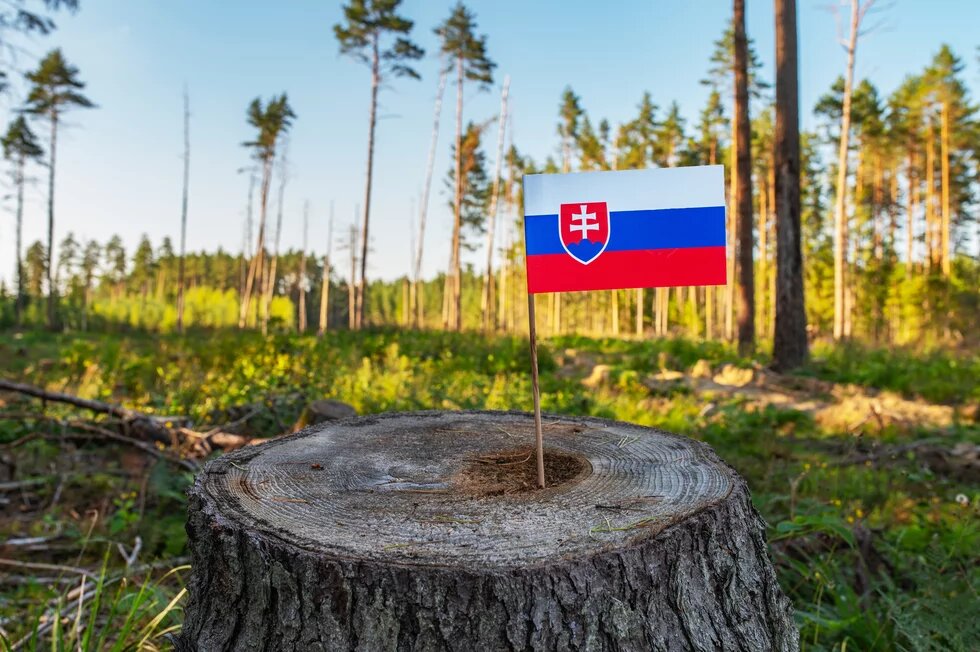Following last year’s September elections in Slovakia, we are witnessing a textbook example of the breakdown of democratic principles. For the fourth time, the position of Prime Minister has been filled by Robert Fico, whose party SMER (Direction) has formed a coalition with Hlas (Voice), a party that broke away from SMER, and the nationalist Slovenská národná strana (Slovak National Party). We cannot base our expectations of the current Government on Fico’s previous terms in office, though. While in the past Fico was leaning toward the EU and wanted to be part of its core, during the COVID-19 pandemic his stance turned quite anti-European and hateful.

Fico’s return and the new direction of Slovakian politics, inspired by Hungary
It was clear even before the elections took place that one of the main enemies of the above-mentioned political parties is civil society itself. What followed the elections just confirms that. The fervently hostile rhetoric these parties employed before the elections – a rhetoric directed against NGOs, polarizing society using topics such as support for Ukraine, fear of bears, or LGBTI issues – has been smoothly turned into the main agenda of the new Government. NGOs are constantly referred to as leeches freeloading off the state who are now “whining” simply because they fear losing their “benefits”, so it is necessary to sort them out with a “firm hand”. The language used by politicians has long crossed the boundaries of politeness and established the reverse – a culture of hostility and hatred. This has been manifesting particularly strongly in the Government’s efforts to eliminate the activities of NGOs focusing on environmental protection, to take control of public broadcasting, and to censor and hinder cultural organizations. As a consequence, its goal is to radically weaken protection of the environment, reduce funding for culture, limit the extent of public participation, and undermine the main pillars of democracy.
The development of Slovakia is reminiscent of the Hungarian path under Viktor Orbán’s rule. However, there are several differences. For instance, what Orbán’s Government has taken years to accomplish, the new Slovakian Government has managed in months. Secondly, even Orbán had his moments when he chose to be rather careful with the changes he made, while the Slovakian model of bringing about change resembles an unguided missile attack.
Ministries in the hands of radicals
The Culture Ministry and Environment Ministry are now headed by politicians from the Slovenská národná strana. That party managed to get the necessary votes by accepting representatives from far-right parties and letting them ascend to power. Fighting against environmental protection has been one of their main talking points, and their leaders have gone on to take up key positions in Parliament, as ministers, and as state secretaries.
Environment Minister Tomáš Taraba, who ran on the ticket of the Slovenská národná strana, did not plan to become the head of the Environment Ministry. He had been openly interested in the Ministry of the Economy, and it shows in how he is running the ministry tasked with protecting the environment. During his political carrier, Taraba went from one far-right party to another. Although at first glance he appears to have become more polite and sophisticated now that he has become a minister, this is just an illusion brought about by comparing him to his party colleagues, who do not hesitate to cross the boundaries of acceptable political culture when it comes to their words or actions. However, all of them attack the non-governmental sector in the same way, which also aligns with the Prime Minister and the representatives of his party, SMER. Since becoming minister, Taraba has been focusing mainly on economic and entrepreneurial projects that go against environmental protection and are reminiscent of the communist regime. He talks of reviving long-abandoned, megalomaniacal projects of hydroelectric power plants, of building new waste incinerators, and of other investments that have no basis in expertise and may pose a serious threat to the environment.
Among these projects is the construction of the Slatinka hydroelectric power plant, which was drawn up during the communist era. After the fall of the regime in 1989, it took 30 years for environmentalists and residents of the town that was supposed to be destroyed and flooded to create the power plant to finally persuade the Government to remove this project from its key strategic document determining state water policy. Now the Environment Ministry under Taraba is suggesting reversing this recently-approved policy. The measures which have been painstakingly prepared to keep up with the current demand of adapting to climate change, based on the most recent scientific methods, are to be changed and replaced by antiquated approaches which do not correspond to the current findings and needs of the country. Just as in the past, no one seems to be able to clearly answer the question of what would be the benefits of this project and whom it would benefit. The Slatinka power plant is far from the only example of this approach, though. Projects that have laid abandoned and forgotten for decades are suddenly rising from the ashes. They had previously proved themselves useless and often downright destructive to the environment. No one can expect that the ministry which is supposed to guarantee the protection of the environment will do its job under the leadership of such a minister.
Even though Slovakia struggles with budget issues, the Environment Ministry now has an unprecedented three state secretaries. They are tasked with just a limited number of duties and their position within the ministry mainly serves as a political reward. The most absurd case is probably the family duo of Secretaries Štefan and Filip Kuff. After a year of being in power, it is clear that their common interest is to satisfy the needs of friendly interest groups, especially private forest owners and hunters.
Under their leadership, the ministry has stopped several important processes and started to radically change environmental protections. These politicians announced before the elections that if elected, they would stop the ongoing, so badly needed national parks reform and that they would make short work of both bears and environmentalist NGOs. To achieve their goals they are changing laws, dismissing experts at the ministry and the national parks, and transforming the already established, well-functioning mechanisms of funding for environmental protections in Slovakia.
Legislative whirlwind: Sudden changes of laws and the danger to democracy
Ever since the new Government came into office, Slovakia has been experiencing a legislative whirlwind. Amendments are proposed through shortened legislative procedures without sufficient justification and with incredible speed. This often results in poor-quality proposals with unconstitutional elements which are also not in accordance with EU law or Slovakia’s international commitments. There are no expert discussions of these changes, nor is there enough participation.
One of the first laws to which an amendment was proposed was the key law on environmental impact assessment. The legislation has justifiably been in need of an update for some time, which was confirmed by the fact that it was included in the reforms of Slovakia’s Recovery and Resilience Plan. However, the Environment Ministry’s proposal did not answer any of the needs of the parties concerned, from businesses to local authorities to civil society. The amendment will not deliver on the previously-announced intention to simplify procedures, speed them up and make them more transparent. Instead, it significantly limits the rights of the public and local authorities, causes chaos, and in practice will effectively make everything slower because of potential legal battles. Because the amendment violates the constitutional rights of cities and towns, it has been vetoed by newly-appointed President Peter Pellegrini.
In recent months, several amendments have been approved that restrict opportunities for public participation, make the felling of trees easier, and make the construction of large projects more difficult. It is typical of these amendments that they are carried out under the pretext of the transposition of EU laws. However, in many cases, the transposition is truly just a pretext, as the suggested changes do not uphold the original intentions of the EU and the transposition is being done neither completely nor correctly. Slovakia may therefore face infringements and potentially high fines. Examples of this are the emissions trading law, or the transposition of the TEN-T regulation, to which an unrelated part on strategic investments has been added. This allows the Government to circumvent the public and appropriate property, while citizens do not have sufficient options to defend themselves.
Fictitious enemies are lurking everywhere, especially in the woods
A special chapter here are the proposed changes regarding the apparently insane fight against the brown bear, which is a protected species. The bear has become Enemy Number One and the main talking point of Robert Huliak, a legislator for the Slovenská národná strana who also serves as the chair of the Committee for Agriculture and the Environment in the unicameral legislature. Originally, Huliak was a candidate for the Environment Minister position, but after intense protests from environmental organizations and the public, then-President Zuzana Čaputová refused to appoint him because of his attitudes and statements denying climate change.
Huliak is also one of the lawmakers who proposed the amended law on nonprofits. Its goal is to focus attention on organizations which receive funding from abroad. The proposal is a typical example of what we have seen in Hungary and Georgia, except it is even harsher towards the third sector. Not only does it allow the labelling of certain NGOs in this way, it also allows their dissolution without the need for a court decision, simply based on their failure to comply with reporting and labelling obligations which are not clearly defined in the law. There is no doubt that this law is aimed at particular critics and inconvenient organizations. Huliak has publicly acknowledged that the law is not aimed at all NGOs, but just at those labelled as harmful or hostile towards the state by politicians.
Huliak is a hunter himself and is actively promoting changes to legislation and various measures on bear hunting. After a calculated, manufactured media panic regarding bears and several changes of laws, more than 70 of the animals have been killed in Slovakia since the beginning of this year, and the number keeps growing. One absurd pretext for the culling of bears came in the form of an amendment aimed at the facilitation of tree felling. This change impacts cities as well, though. The proposal was opposed by local authorities, which frequently try to protect their green spaces from developers, or which are significantly investing in planting trees as part of climate change adaptation measures. Their opposition was unsuccessful.
Unfortunately, similar senseless legislative changes, strategies and other regulations are being put forward and pushed through every month in Slovakia.
Purges of personnel: Political nominations and the loss of experts at the ministry
When the new Government came into power, a wave of dismissals of experts from the Environment Ministry and its subordinate institutions started. More than 50 chief workers lost their jobs, many of whom have worked in their fields for years regardless of the political leadership of the ministry. All the department heads of the ministry, the national parks managers, and the directors of nature protection institutions and inspection authorities were replaced. Their successors were promoted to these positions for political goals and often do not have the education necessary nor the managerial experience to handle them. The outflow of experts continues till today, including from the lower levels of the ministry. The employees of the ministry and other institutions are mentioning being subjected to intimidation, the inability to carry out their duties professionally, and the overall hostile environment for them that arose after the management replacements following the elections. State-directed environmental protection is, therefore, now subject to political and lobbying interests and appears rather dysfunctional.
Destruction through inaction
Apart from the number of destructive interventions aimed at the main pillars of environmental protections and civil society, Slovakia also struggles with inaction in areas which are not priorities for the elected policy-makers. Many processes required to fulfil EU commitments have been stopped or are stagnating. This is exemplified by the crisis regarding the fulfilment of the commitments of the Recovery and Resilience Plan. Slovakia was one of the first Member States to pass the thresholds and start drawing funding under this plan. Nowadays, the indicators of its obligation fulfilment are in the red, begging the question of how much of the plan Slovakia will be able to deliver. Many reforms have come to a standstill, some may be aborted entirely. Many of those are from the environmental sector and focus on combating climate change. However, funding seems to be a powerful motivation for the current Government and so, combined with the EU Commission’s strict stance, funding-related tools appear to be the only ones that can stop or at least slow down these destructive efforts.
The European Union as an emergency brake
The role of the EU is irreplaceable. Slovakia’s membership in the EU guarantees that its Government will not cross certain lines. In this respect, Government officials often play both sides. During the discussions in the EU institutions they cooperate, while on the national level they criticize the EU. It is not unusual for the ministers and the Prime Minister to loudly protest against the EU’s proposals at home and then vote in favour of them at the Commission. The reverse is also the case: After they assure the EU of their cooperation, they do the exact opposite at home.
At a time of extreme weather events, we fail to protect our country; we are not adopting climate protection measures, which leads to more environmental destruction. Even if we could rectify the legislative missteps and enable the weakened institutions to function properly once again, the damage to our natural environment was done. So much time to fight climate change has been lost, and the degradation and loss of biodiversity cannot be reversed. It is not just the environment and the climate, which will have to bear the consequences of this, but ordinary people will be impacted, too.


